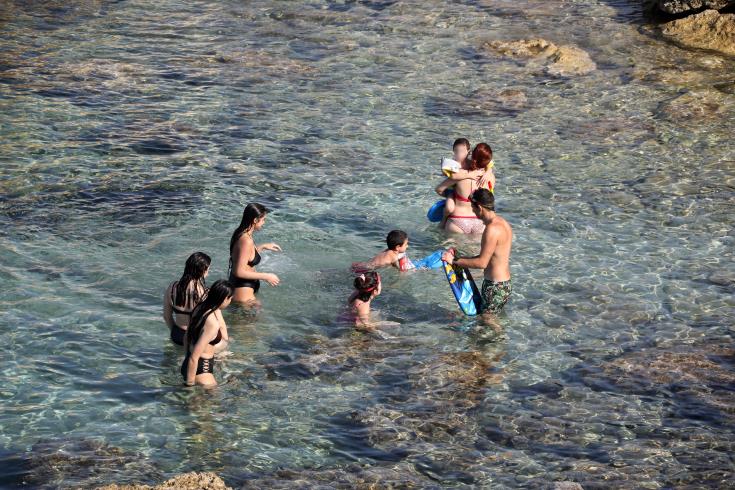Cyprus has the cleanest beaches in Europe with an EU report confirming that 99.1% of Cypriot bathing waters are of excellent quality.
Environment Minister Costas Kadis hailed the EU report that places Cyprus ahead of member states for the quality of its bathing waters.
Kadis said the quality of its water gave Cyprus the edge in attracting tourists.
He said that quality is important for the health of swimmers and the environment but also gives the tourism industry a boost.
He argued that Cyprus’ excellent results are no coincidence, since its admission to the EU in 2004, Nicosia has complied with strict criteria on bathing waters.
Kadis also said that between May-October 2019 a total of 112 bathing areas were under inspection on a monthly basis and tests were carried out before the swimming season.
Out of 22,295 bathing sites in Europe in 2019, 84.6% were of excellent quality, said the EU bathing quality report.
In five countries, 95% or more, of bathing waters were of excellent quality: Cyprus, Austria, Malta, Greece, and Croatia.
According to the report, in five countries 95% or more of bathing sites were found to have excellent water quality: Cyprus (99.1% of all sites), Austria (98.5%), Malta (97.7%), Greece (95.7%) and Croatia (95.6%).
Additionally in Greece, Latvia, Lithuania, Luxembourg, Romania and Slovenia, all assessed bathing water sites were of at least sufficient quality in 2019.
The share of excellent bathing waters in the EU changed slightly since 2013, increasing from 85.2% to 87.4% for coastal bathing waters and from 76.5% to 79.1% for inland bathing waters.
The quality of coastal sites was generally better than that of inland sites due to the better self-purification capacity of coastal areas.
Moreover, many central European inland bathing water sites are situated on relatively small lakes and ponds as well as low flow rivers, which, especially in the summer, are more susceptible than coastal areas to short-term pollution caused by heavy summer rains.
Some water quality problems still exist
In 2019, 294 or 1.3% of bathing water sites in the EU were of poor quality.
While the share of poor-quality sites dropped slightly since 2013, problems persist at bathing waters of poor quality or bathing waters that are often affected by short-term pollution.
In six European countries, 3% or more of bathing waters were of poor quality: Albania (seven bathing waters or 5.9%), Estonia (three bathing waters or 5.6 %), Hungary (10 bathing waters or 3.9%), Ireland (five bathing waters or 3.4%), the Netherlands (24 bathing waters or 3.3%) and Slovakia (one bathing water or 3.1%).
In Albania, the number of poor bathing sites dropped significantly since 2015, when 31 bathing water sites (or 39.1%) were assessed as poor.
This improvement can be linked to the construction of five wastewater treatment plants in Albania.
Swimming at bathing sites with poor water quality can result in illness.










